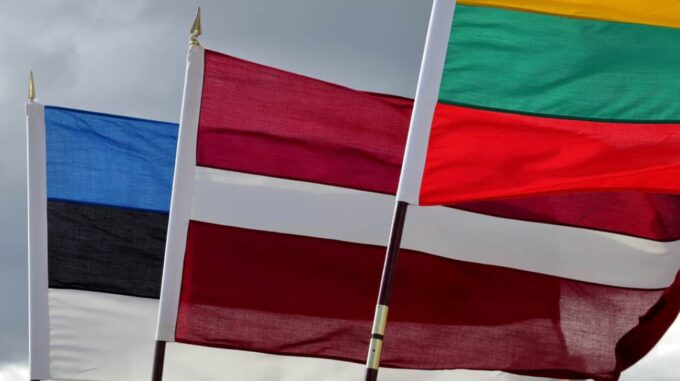The Baltic countries have expressed unwavering support for Ukraine in its pursuit of full membership in the European Union and NATO, announcing their intentions to intensify efforts to assist in this direction

At the government level, the three countries — Estonia, Latvia, and Lithuania — issued a joint declaration, which has become an important signal to the international community regarding their firm position in supporting Ukrainian sovereignty and security. The committee meetings on foreign affairs took place on Friday, June 6, in the city of Birštonas — the administrative centre of Lithuania. In the final documents, parliamentary delegates reaffirmed their steadfast commitment to preserving Ukraine’s independence and territorial integrity. They emphasized that Ukraine’s outright victory in this conflict, as well as its integration into defense and Euro-Atlantic structures, are two key conditions for establishing lasting and just peace in Europe. A central element of this statement was the prospect of Ukraine’s NATO membership, which, in the opinion of European politicians, would create a solid foundation for Euro-Atlantic security across the continent. They underlined that Russia’s full-scale aggression is a gross violation of international law, the UN Charter, and fundamental human rights standards, requiring the most decisive international measures. The committees outlined a number of goals and commitments, including providing comprehensive support to Ukraine until its final victory — including the return of occupied territories, bringing war criminals to justice, and adhering to principles of international justice. Simultaneously, they called for expedited completion of Ukraine’s EU accession process, setting a goal to achieve this by 2030, thus paving the way for the country’s full membership in the near future. Additionally, support for Ukraine’s Euro-Atlantic course became an important aspect of this declaration. Participants stressed the need to strengthen cooperation within NATO summits, notably in Bucharest 2008, Vilnius 2023, and Washington 2024, as well as called for concrete decisions at the upcoming Hague Summit in 2025. This includes expanding military cooperation and creating preconditions for deeper integration of Ukraine into NATO’s security system. Another significant point is the call to enhance defense cooperation with Ukraine, including facilitating its accession to the Joint Expeditionary Force (JEF) — a step toward more flexible and effective defense collaboration. They also urged diplomatic pressure on Russia through international mechanisms: isolating Russia in global organizations, expanding sanctions, and holding accountable those responsible for crimes against Ukraine. The document emphasizes the importance of broad international support, calling on other parliamentary bodies, international institutions, and governments to join this initiative and actively back Ukraine’s strategic goals — its victory, post-war recovery, and accession to the Euro-Atlantic community. In light of these events, the future NATO summit scheduled in The Hague at the end of June has become especially significant. It is expected that alliance leaders will decide on increasing defense spending to 5% of each country’s GDP — part of which will be directed toward supporting Ukraine, which could significantly boost its defense capabilities and accelerate the implementation of defense reforms. According to preliminary reports, about 3.5% of GDP will be used directly for military needs, while 1.5% could go toward broader security initiatives, including reconstruction efforts, infrastructure strengthening, and support for defense innovations. It is noteworthy that partner countries already committed to increasing their contributions to this target, notably Canada and Luxembourg, and may expand their assistance to Ukraine in line with the overall goals. Furthermore, in the context of supporting Ukraine, public and political discussions regarding its defense and high-level support are gaining importance. NATO leaders increasingly speak about the necessity of maintaining firmness and resolve in strategic decisions, and about the importance of unity within the alliance — even in the most challenging situations. As Lithuanian political figure Žygimantas Pavilionis stated in an interview with "EuroPravda," there is no need to fear a tough stance from Ukrainian President Volodymyr Zelenskyy at the upcoming summit. He believes such decisions can demonstrate the strength of the international community and its readiness to take responsible actions even on the eve of potential challenges. "The U.S. respects those who get up after a blow," he emphasized, calling for unity and courage in supporting Ukraine and its aspirations to become a full member of the Euro-Atlantic community. Against the backdrop of these developments, the Baltic states are especially eager to be as active and decisive as possible in assisting Ukraine. They advocate for a broad international consolidated process, both politically and militarily, because unity within the alliance and the global community will be key to achieving victory, recovery, and stability in the Euro-Atlantic region.

